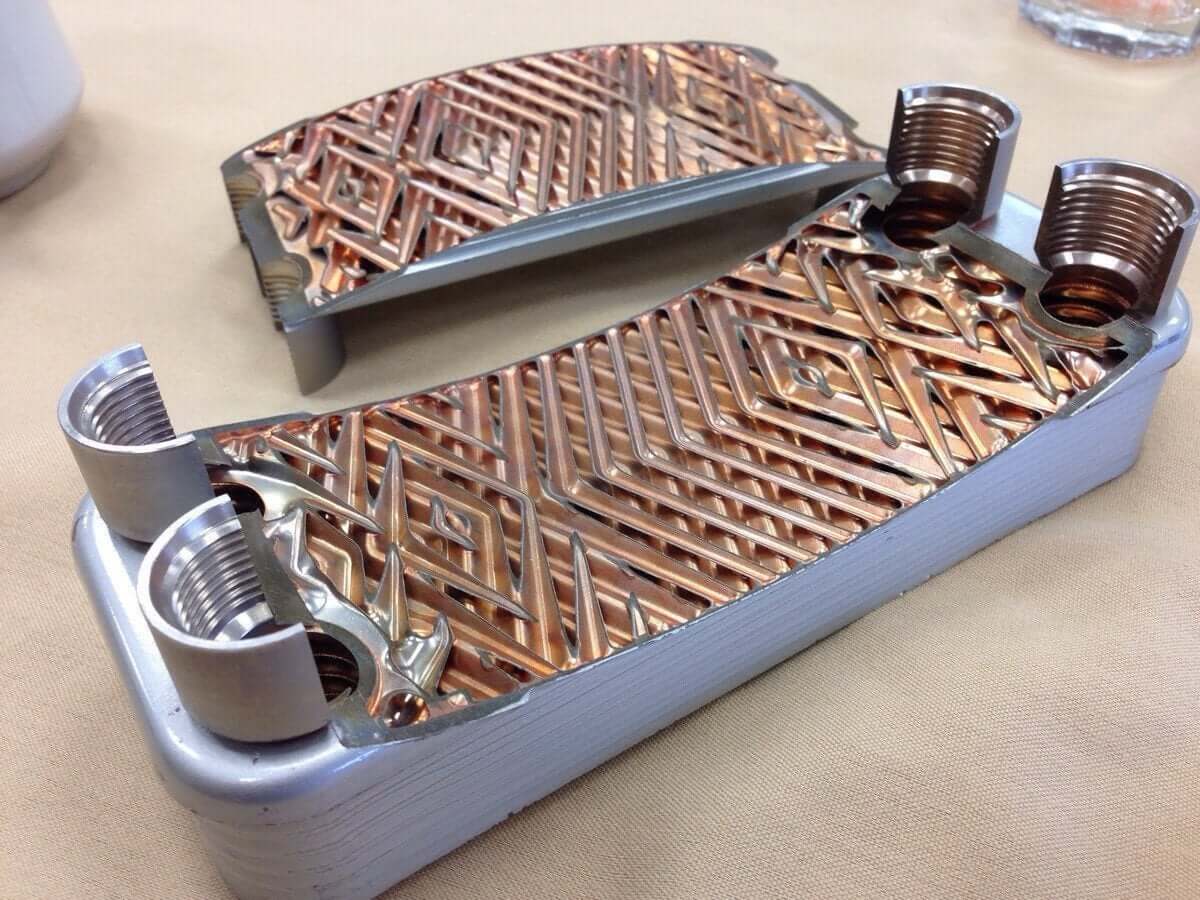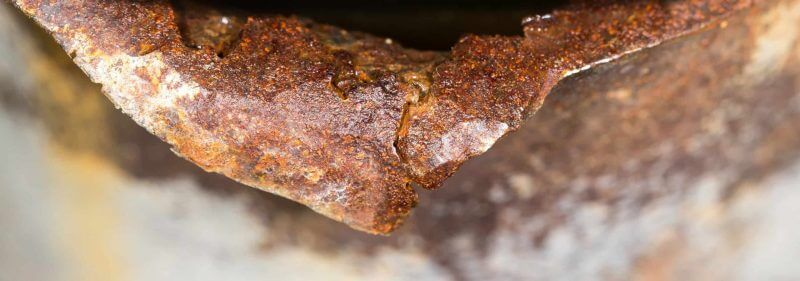Why to Always let a Professional Clean a Brazed Plate Heat Exchanger

It is apparent that these types of heat exchanges are fused shut, hence they are known as “brazed.” And, there is no easy way for an individual to properly clean these devices.
The standard advice offered is to use some type of solvent to clean these devices. This no doubt will work to some extent; and, remove a good amount of fouling from the device. The problem is that flushing a brazed plate heat exchanger with a solvent will leave behind a significant amount of fouling.
After using a solvent to flush a brazed plate heat exchanger, debris and gunk will have become agitated and loosened via the flushing process. This debris is then free to dislodge when the device is put back into operation.
If your heat exchanger is connected to a valuable fluid system, engine, or machine; free floating debris could wreak havoc on these systems. The small spaces, filters, and other system parts that depend on clean fluid will be jeopardized by this loose debris.
Debris from a half-way cleaned heat exchanger could end up sticking on some narrow passage, and in time, gather more gunk. After prolonged use, there could be several areas of buildup in the fluid system. Eventually, a total failure of the complex fluid system could occur.
This is especially true for brazed plate heat exchangers that are used for cooling oil; a.k.a. “oil coolers.” Many transmission and torque converter failures happen after a poor choice is made to improperly flush a transmission cooler. There are even products sold for this, but their use is very risky; and, does result in total transmission failures time and time again. This is for the same reasons: the dislodged debris from an oil cooler finds its way into the transmission or torque converter and causes a total failure.
Two Choices for Fixing a Brazed Plate Heat Exchanger
Because your entire fluid system is put into jeopardy if your heat exchanger isn’t thoroughly clean, you really have only two sensible choices when it gets fouled:
- Buy a brand new brazed plate heat exchanger
- Let a professional heat exchanger cleaning company get it totally clean
I know its not as appealing as solving your problem with a a can of caustic solvent from the hardware store. But, if you don’t want to risk damaging the other components of your fluid system, these are your only two options.
It is not possible for a can of solvent to totally clean the many tiny channels within a brazed plate heat exchanger.
The Different Types of Fouling
Brazed plate heat exchangers, like other heat exchangers, will eventually become dirty and need to be replaced or effectively cleaned. The type of fouling that will occur to the inside of these devices depends nearly entirely on the fluid that is passed through them. Another key variable is the type of metal the heat exchanger is made from.
Let’s discuss some of the most common types of fouling that can occur in brazed plate heat exchangers.
Lime Scale Fouling from Hard Water

Water hardness is a term that is common knowledge; it refers to the mineral content of water. In technical terms, water hardness is scientifically measured by the amount of dissolved calcium and magnesium in water. This is because the minerals in hard water have a lot of calcium and magnesium in them [source 1].
When hard water is heated, such as the water in a heat exchanger, calcium carbonate can form. The calcium carbonate eventually builds up and coats the surfaces it is in contact with. One common example of this is the white film that builds up on drinking glasses run through dishwashers using hard water. You may have seen these harmless, but unsightly, limescale deposits on your drinking glasses or your friend’s.
In a brazed plate heat exchanger, limescale can also build up. The small channels water flows through are prone to accumulate limescale; especially since the water is heated. The eventual buildup, of course, forms an insulating layer in the brazed plate heat exchanger. The reduced size of the channels can also lead to a pressure drop in exiting fluid—and corresponding higher fluid velocity.
The end result of too much limescale in a heat exchanger is reduced efficiency, and possible failure.
Brazed Plate Heat Exchangers for Oil Cooling
Typically, a brazed pate heat exchanger that has oil flowing through it is for cooling the oil. These types of heat exchangers are common in engines--especially transmission oil coolers.
Since these types of heat exchangers are often connected to intricate mechanical systems, they often become home to some unusual types of fouling. Very tiny metal flakes, dirt, and grime all eventually build up inside of oil coolers. The end result is a drop in exit pressure and reduced efficiency. And, it is often vital to the mechanical system that an oil cooler is connected to for this device to actually work!
Biological Fouling of Heat Exchangers
Another type of fouling that can occur is often referred to as “biological.” This term refers to living organisms, such as algae, bacteria, or fungi. Biological fouling only occurs in specific applications where the fluid passing through the heat exchanger has biological material in it.
One great example of such circumstances are marine / boat heat exchangers. Even though marine water may be filtered, it is inevitable that some microscopic organisms find their way into the fluid system. Eventually, the small channels within a brazed plate heat exchanger can become clogged with these biological contaminants.
Rust & Corrosion

Another type of fouling that can occur in a brazed plate heat exchanger is rust and corrosion. This type of fouling is extremely important to remove as it can lead to the destruction of the unit. If your heat exchanger develops holes or cracks due to rust or corrosion, it will no longer be operable.
This type of fouling is important to let a professional handle, if you are looking to reuse your old heat exchanger. The use of improper solvents and cleaning procedures could make a bad situation worse; and ultimately lead to the failure of the unit. This is because many solvents used to clean these devices precipitate rusting.
Even More Reason to Let a Professional Clean your Heat Exchanger
Because the aspects of these different types of fouling takes time to understand, it is important to let an expert address a heat exchangers unique situation. Flushing Services has over 30 years of experience dealing with a vast array of dirty heat exchangers. We know what cleaning techniques to use to deliver a truly pristine cleaning in a cost-effective, expedient way.
We also know how to respect the construction of every heat exchanger and ensure our cleaning techniques will not damage your device. This can be especially important for expensive heat exchangers. Hacks and DIY approaches can permanently damage a brazed plate heat exchanger; making it a liability to the whole fluid system (e.g., from eventual rusting when the device is put back in operation).
Our friendly staff is ready to work with you and get your brazed plate heat exchanger back to you totally restored and ready for use. We pride ourselves on being a cost-effective option; and, hope to save you time and money with our fast, effective service. Get in touch with us for a free quote regarding restoring your heat exchanger!